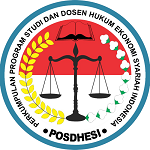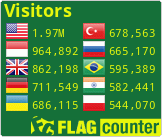Wanprestasi Akibat Keterlambatan Pengantaran oleh Kurir GoFood
DOI:
https://doi.org/10.32332/muamalah.v3i1.8136Keywords:
Delivery Delays, Customer Satisfaction, Gofood, Breach Of ContractAbstract
This article examines the breach of contract issue related to delays in food delivery by GoFood couriers, a rapidly growing food delivery service in Indonesia. Despite the increasing popularity of such services, there is a significant research gap regarding the impact of delivery delays on customer satisfaction. This study aims to analyze the impact of delivery delays on customer satisfaction and identify the factors contributing to these delays. Using a case study analysis method explores specific instances of breach of contract due to delivery delays by GoFood couriers. The results indicate that delivery delays significantly negatively impact customers' perception of GoFood's service. Contributing factors to the delays include traffic conditions, order volume, and company policies. These findings provide valuable insights for GoFood and similar services to enhance delivery efficiency and customer satisfaction. The practical implications of this study include recommendations for improving delivery processes, courier training, and better communication with customers. This research contributes to understanding how delivery delays can affect brand image and customer satisfaction in the context of an evolving food delivery service. In conclusion, the corrective actions taken by the company can help improve service quality and minimize potential conflicts with customers.
Downloads
References
Downloads
Published
Issue
Section
License
Copyright (c) 2024 Slamet Eko Widodo, Fredy Gandhi Midia

This work is licensed under a Creative Commons Attribution-ShareAlike 4.0 International License.
All articles in the Mu'amalah: Jurnal Hukum Ekonomi Syariah can be disseminated on condition that they still include the identity of the article and the source (Mu'amalah). The publisher is not responsible for the contents of the article. The content of the article is the sole responsibility of the author.
Authors who publish this subject agree to the following terms:
First, the Authors retain copyright and grant the journal rights from the first publication with the work simultaneously licensed under a Creative Commons Attribution-ShareAlike 4.0 International License that allows others to share the work with an acknowledgement of the work's authorship and initial publication in this journal.
Secondly, the authors can enter into a separate or an acknowledgement of its initial (e.g., post-institutional repository or publish it in a book) publication in this journal.
![]()
Third, the authors are permitted and encouraged to post their work online (e.g., in institutional repositories or on their website) before publishing work is cited.








